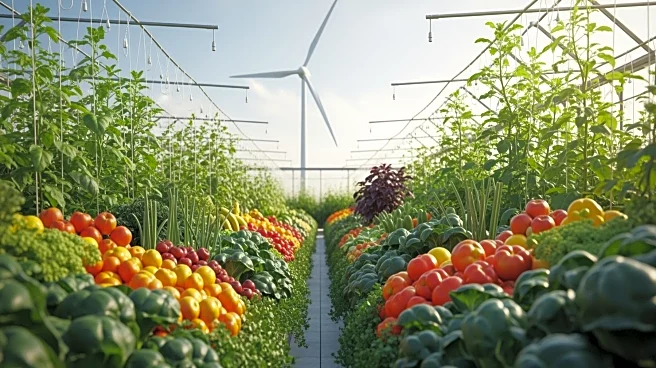What's Happening?
The global sustainable agriculture market is projected to grow at a compound annual growth rate (CAGR) of 10.30% from 2025 to 2032, according to DataM Intelligence. The market, valued at $15,464.45 million
in 2024, is expected to reach $33,879.62 million by 2032. This growth is driven by increasing concerns over climate change, consumer demand for sustainably produced food, and government initiatives promoting eco-friendly farming practices. Recent developments include the European Commission's allocation of €5.2 billion for regenerative agriculture, the U.S. Department of Agriculture's expansion of funding to $3.1 billion for climate-smart commodities, and India's $1.8 billion initiative for organic farming. The market is also seeing a surge in smart irrigation systems and corporate commitments to sustainable sourcing.
Why It's Important?
The expansion of the sustainable agriculture market is crucial for addressing climate change and food security challenges. As climate change pressures mount, there is a growing need for climate-resilient farming systems. The market's growth supports the transition to sustainable practices, which can lead to reduced environmental impact and enhanced food security. This shift is beneficial for farmers, who can access premium markets and improve profitability through sustainable practices. Additionally, technological innovations in precision agriculture and biological inputs are driving market expansion, offering new opportunities for agri-tech companies and sustainable solution providers.
What's Next?
The sustainable agriculture market is expected to continue its growth trajectory, with significant contributions from North America and Europe due to strong regulatory frameworks and consumer awareness. The Asia-Pacific region is anticipated to experience the fastest growth, driven by government initiatives and modernization of agricultural practices. As the market evolves, there will likely be increased collaboration between established agricultural companies and technology startups to integrate advanced solutions into farming operations. This could lead to further innovations in sustainable farming practices and increased adoption of climate-smart technologies.









